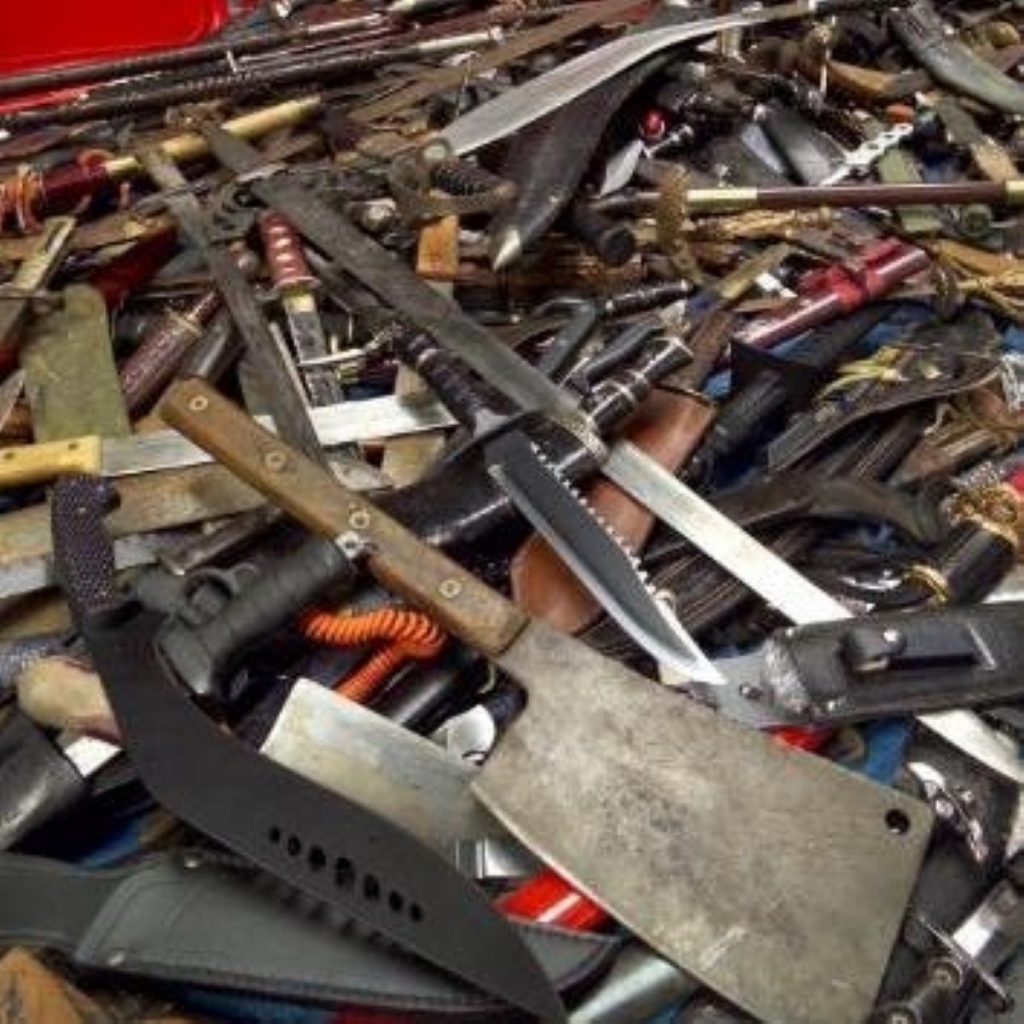Government knife strategy ‘incoherent’
The government’s strategy to tackle knife crime is incoherent and ineffective, a new report warns today.
A study by the Centre for Crime and Justice Studies says there is nothing to suggest that knife amnesties, such as the national amnesty held recently across the UK, are effective.
Report author Chris Eades also warns that the government’s plans to increase the maximum sentence for carrying a knife from two to four years “smacks of a knee-jerk legislative response” to media concerns.
The Home Office rejected the criticisms, insisting that the recent amnesty in England and Wales had taken nearly 90,000 knives off the street, and that plans to increase the sentence for carrying a knife sent out a “strong message” that it was a serious offence.


Today’s report reviews the evidence on knife crime available from police recorded crime statistics, the British Crime Survey (BCS) and other sources, and finds that despite falling overall levels of violent crime, the use of knives in muggings rose sharply last year.
In the 12 months to April there were 42,020 muggings involving knives, up 72 per cent on the previous year. However, this increase came after a decade-long drop in the use of knives in street robberies, from 25 per cent in 1995 to 11 per cent in 2004.
The main concern of today’s report is that none of the government’s proposals to tackle knife crime are based on any proper evidence – there had been little evaluation of local amnesties across the country, nor of education schemes.
A 1993 amnesty in Strathclyde, for example, resulted in a fall in serious stabbings for ten months afterwards, but then the figures returned to pre-amnesty levels.
Ministers have stressed that the knife amnesty and tougher sentences must be accompanied by education programmes to warn young people of the dangers of knives, but the report finds that even these plans are not being implemented properly.
Police forces across England and Wales have been given £500,000 for education schemes, but Mr Eades says this ignores the natural distrust of police among many young people. Community workers might be better at delivering information, he argues.
“Government and the police lack a coherent, evidence-based, reasoned strategy for dealing with knife carrying and knife-related offences,” the report warns.
“There is insufficient evidence that a knife amnesty or increasing sentence length for carrying knives will decrease the level of knife use and carrying.
“Since it is extremely difficult, if not impossible, to limit the availability of knives, and knives are merely a tool used in violent crime, success in fighting knife usage will only come with success in dealing with the underlying causes of violence, fear and insecurity.”
Shadow home secretary David Davis said today’s report was a sign that the government had failed to get a grip on the growing problem of knife crime, which he described as a “scourge on society”.
“It completely undermines Labour’s claims to be tough on crime. We have consistently proposed tougher measures on knife crime which the government have blocked – the public are now paying the price,” he said.
However, the Conservatives also came under fire in the report – leader David Cameron’s criticism of rappers for glorifying knives misses the point, Mr Eades says, which is that hip hop artists simply reflect the reality of everyday life.









